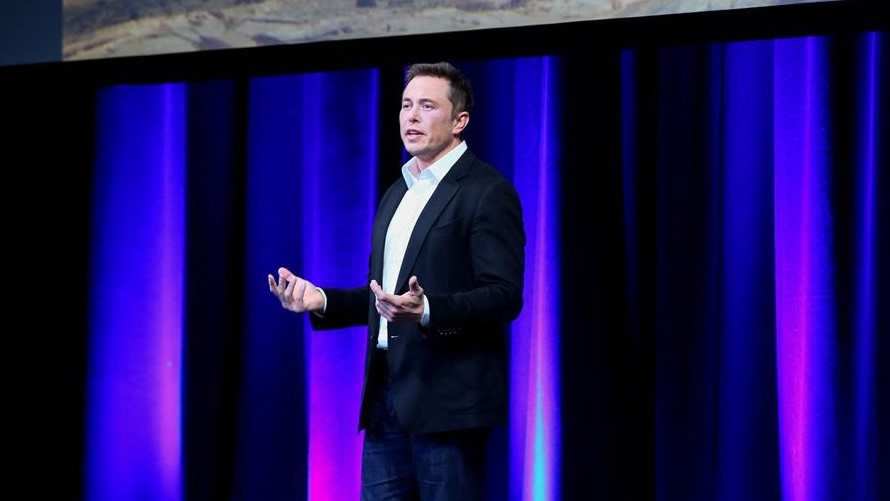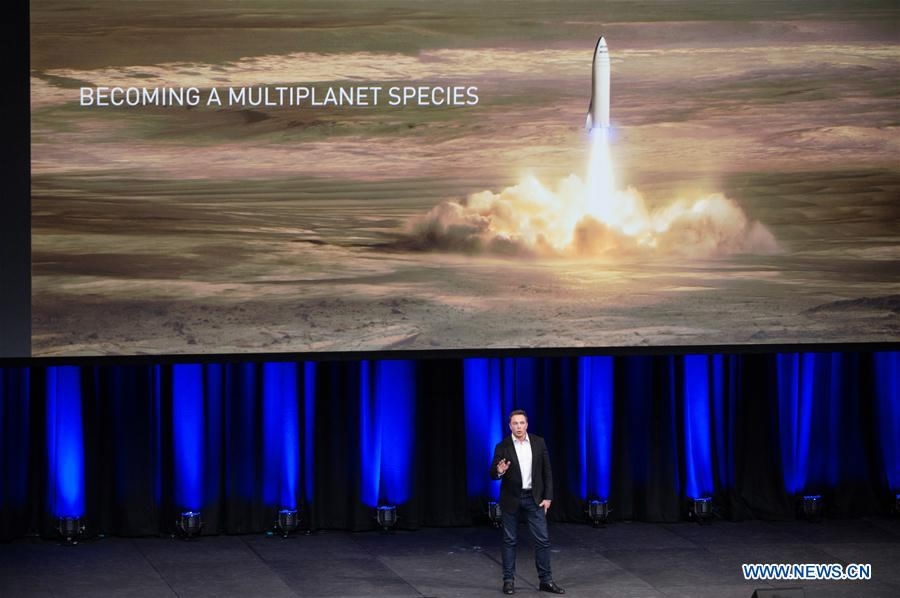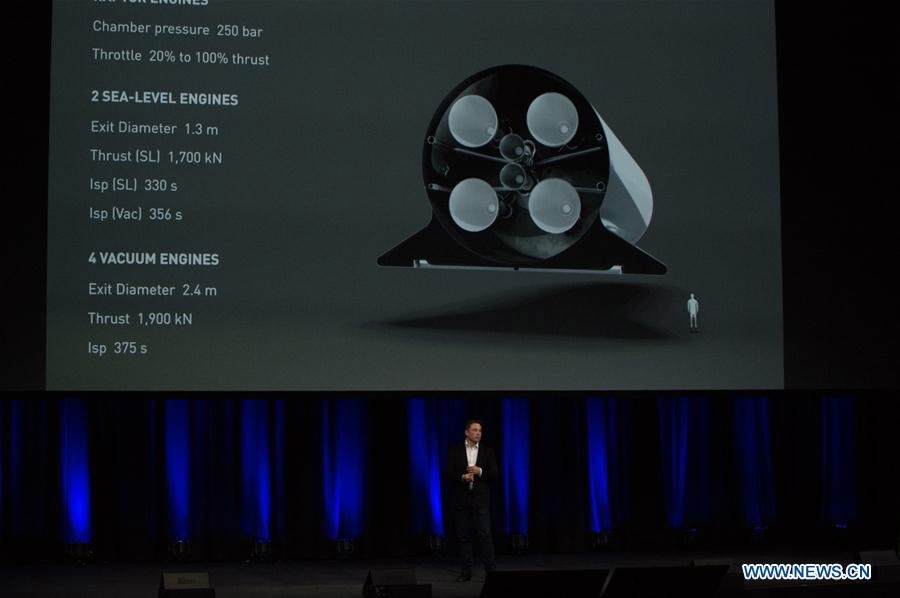
Space
19:15, 30-Sep-2017
SpaceX to conduct a manned journey to Mars by 2024

Elon Musk's Space Exploration Technologies Corporation (SpaceX) unveiled its plan to conduct a manned mission to Mars within the next six years at an event in Australia on Friday.
Speaking on the final day of the 68th International Astronautical Congress (IAC) in Adelaide, South Australia, SpaceX founder and CEO Musk gave further details of the company's plan to put humans on Mars.
Musk, who also serves as the CEO of automotive company Tesla, said SpaceX was aiming for cargo missions to Mars in 2022 and crew with cargo by 2024.

Elon Musk speaks on the final day of the 68th International Astronautical Congress (IAC) in Adelaide, Australia, on September 29, 2017. /Xinhua Photo
Elon Musk speaks on the final day of the 68th International Astronautical Congress (IAC) in Adelaide, Australia, on September 29, 2017. /Xinhua Photo
He said that missions to Mars would be launched every two years starting in 2022, with colonization and terraforming to begin as soon as the first humans arrive, in order to make it "a really nice place to be."
"It's about believing in the future, and thinking that the future will be better than the past," Musk said.
SpaceX also announced its new BFR rocket on Friday.
"I can't emphasize enough how profound this is, and how important this is," Musk told the congress during his keynote speech on the final day.
The new BFR has the highest capacity payload of any rocket ever built, meaning it has the lowest launch cost, due to its status as a fully reusable rocket, while also being the most powerful.
"It's really crazy that we build these sophisticated rockets and then crash them every time we fire," Musk said.
He said that the new BFR could carry a 40-carriage spaceship to Mars with two or three people occupying each carriage.
The rocket is capable of flying from Earth to the Moon and back without refueling, with the aim of making a base on the Moon - dubbed Moon Base Alpha - achievable in the near future.

Elon Musk said the BFR rocket could travel from New York City to Shanghai in 37 minutes at a maximum speed of 18,000 miles per hour. /Xinhua Photo
Elon Musk said the BFR rocket could travel from New York City to Shanghai in 37 minutes at a maximum speed of 18,000 miles per hour. /Xinhua Photo
SpaceX intends for the new, scaled-down BFR to replace its other flagship rockets, the Dragon, Falcon 9 and Falcon Heavy.
Musk said the BFR could even be used for international flights on Earth, promising to cut most long-distance Earth flights to just half an hour.
He said the rocket could travel from New York City to Shanghai in 37 minutes at a maximum speed of 18,000 miles (28,968 kilometers) per hour.
"Most of what people would consider long-distance trips would be completed in less than half an hour," Musk said.
"If we're building this thing to go to the Moon and Mars, then why not go to other places on Earth as well?"
But he said that other applications for the BFR were stepping-stones for the project's main purpose of taking settlers to Mars.
BFR development funding will come from SpaceX's satellite and International Space Station (ISS) revenue.
SpaceX's announcement came hours after US defense, security and aerospace giant Lockheed Martin revealed new technology that would see it land on Mars in partnership with NASA by 2030.
SpaceX estimated this year that a permanent, self-sustaining colony on Mars was 50 to 100 years away.
Friday's press conference took place on the ninth anniversary of SpaceX's Falcon 1 rocket becoming the first privately-developed liquid fuel rocket to enter Earth's orbit.
8636km
Source(s): Xinhua News Agency

SITEMAP
Copyright © 2018 CGTN. Beijing ICP prepared NO.16065310-3
Copyright © 2018 CGTN. Beijing ICP prepared NO.16065310-3